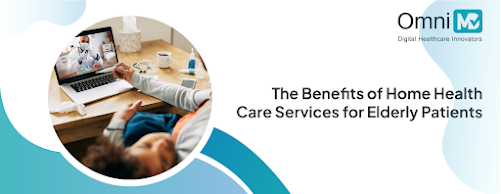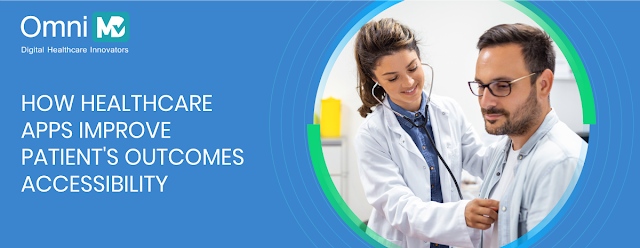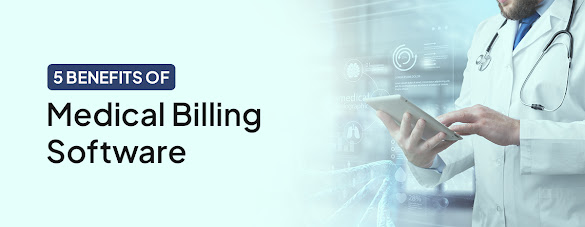Five Reasons Why You Need the Right RCM Software in 2023
In healthcare, who would not desire quick payments, easy communication with patients, and efficient billing systems?
One of the biggest challenges that healthcare experts face is unsettled financial transactions. At times, the revenue cycle gets so disorganized that it results in heavy uncollectible. Furthermore, employees who handle RCM do not receive proper training at times, which badly affects the return on investment (ROI).
Additionally, medical billing and coding errors lead to compensation and claim delays. Sometimes, providers do not get paid at all. This calls for optimization of the revenue cycle so that uncollectible money does not continue to accumulate and affect healthcare clinic bottom lines.
Reliable and dependable RCM software is the answer to most of these woes. This specialized software is designed to help healthcare companies and providers manage their revenue cycle more effectively. As such, research by Fortune Business Insight suggests that the revenue cycle management (RCM) market will grow by $246.40 billion by 2029.
In the days before medical billing software became the norm in the healthcare industry, human employees traditionally handled this task. RCM has automated several tasks, such as billing and collections. Thus, Revenue Cycle Management Software helps speed up the process of getting paid for the healthcare provider's services to the patient. It also improves the overall efficiency of the healthcare delivery process.
There are several vendors in the market selling their RCM, and all claim their medical billing software or Revenue Cycle Management Software is outstanding and reliable. However, not all Revenue Cycle Management Software can be considered standard for a given RCM process. However, let's look at the various essential features that should be looked for while purchasing Revenue Cycle Management Software.
Now that we have looked at the various factors necessitating the use of Revenue Cycle Management Software in the healthcare industry let us study some of the essential features of a reliable medical billing software system in 2023.
1. User-Friendly Interface:
Revenue Cycle Management Software needs to be uncluttered and uncomplicated. Physicians and healthcare professionals do not want to spend most of their time figuring out the interface while using complex Revenue Cycle Management Software. Instead, complex revenue management software will make things more complicated.
On the other hand, RCM that uses a user-friendly interface helps staff and healthcare professionals get accustomed to the software quickly. This helps save time and resources that would have otherwise been spent on training employees without user-friendly Revenue Cycle Management Software.
In 2023, the emphasis is on Revenue Cycle Management Software that automates, streamlines claim management, processing payments, keeping track of denials and rejections, and reduces the overall workload of clinical staff.
2. Claims Tracking:
Claims tracking forms an essential aspect of RCM, wherein the provider or practitioner receives compensation for services rendered. Submitting claims on time is vital for practitioners to receive compensation on time. Errors or discrepancies in claims result in denied claims, ultimately hampers the revenue cycle.
In 2023, the emphasis is on Revenue Cycle Management Software that can be integrated with a claim tracking feature that can also point out errors in claim submissions. Such features help make filing claims simpler and the claims resubmissions a breeze.
3. Eligibility Verification:
Verification of eligibility using manual processes is a highly tedious process. It is always advisable to check if the RCM platform you want is integrated with an eligibility verification feature. This feature facilitates the minimization of claims that may not be manually possible. In 2023, the emphasis is on automated features, including eligibility verification.
4. Cloud Availability
With the growing popularity of cloud-based solutions, one of the best tools you should consider is a cloud-based solution for your RCM services. A reliable provider should be able to offer you unrestricted and on-demand cloud-based access on a 24x7 basis for your RCM services. Cloud-based services provide strong protection against hackers and malware. Additionally, since your RCM is in the cloud, it is easier to access your data, especially when you expand your operations. In 2023, the emphasis is on improving RCM accessibility through cloud operations.
5. Claims submissions at the highest value
It is always advisable to work with medical billing software that can submit claims at their highest possible value. This is especially true if there are chances of potential reductions in the reimbursements. Also, good Revenue Cycle Management Software will keep track of claims values; else, payments may be delayed due to a lack of tracking or a notifications feature.
How to leverage the right RCM Software
Revenue Cycle Management Software has become an indispensable part of revenue cycle management operations. Reliable and efficient Revenue Cycle Management Software helps simplify workflows and helps in claims submissions on a timely basis. Therefore, it becomes easier to receive compensation without any delays.
Conclusion
Today, perceiving an RCM service without reliable and efficient Revenue Cycle Management Software would be nearly impossible. Considering it to be a significant investment for healthcare providers, reliable Revenue Cycle Management Software will go a long way in accommodating your needs. These days, healthcare regulations are constantly changing. Hence a seamless accommodation of these changes through a viable RCM solution is highly advisable.
To learn more about how our revenue cycle management (RCM) services can help you improve your patient experience, visit www.omnimd.com for further information. Alternatively, email marketing@omnimd.com or call us at 1(844)666-4631 to talk to an expert.




Comments
Post a Comment